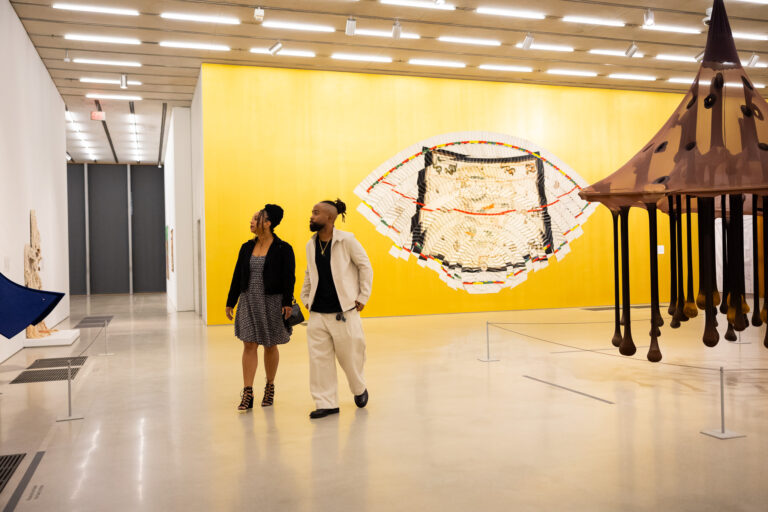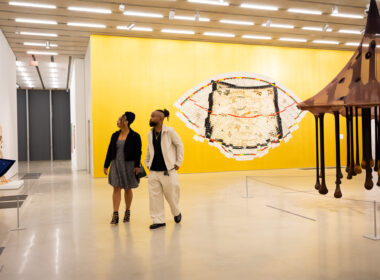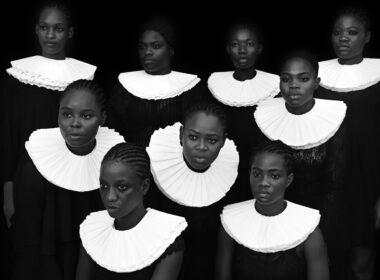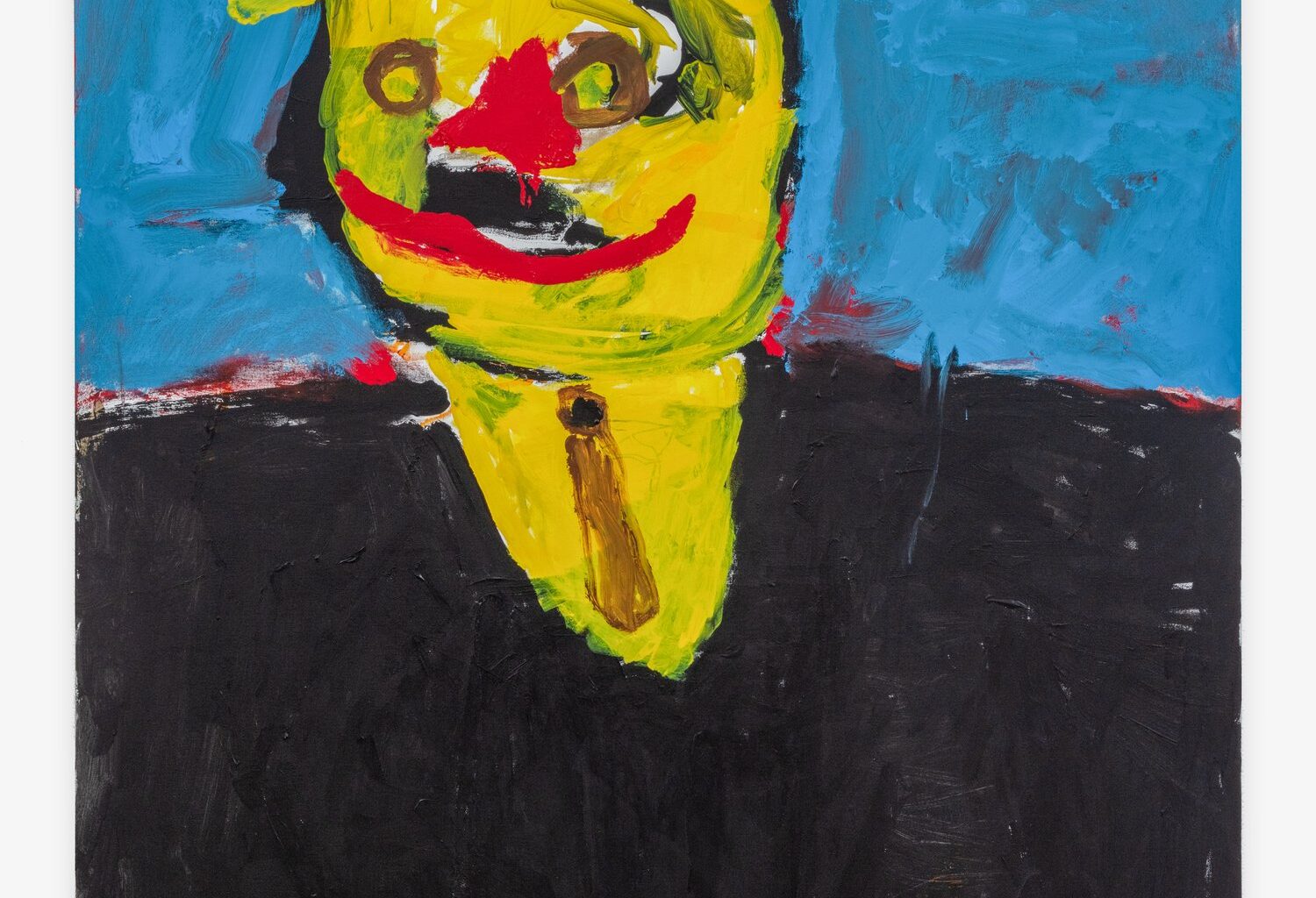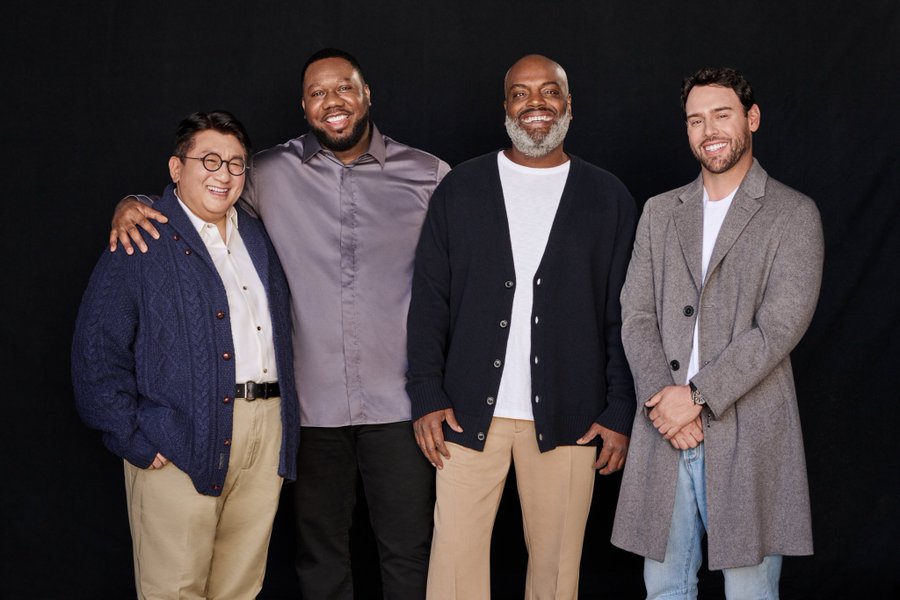This week in Black art and culture, NFTs (Non-Fungible Tokens) and their morality regarding posthumous work is being questioned. After an uproar, a Chadwick Boseman NFT handed out to nominees at the Academy Awards is being redesigned. It turns out that Daystrom, the little-known firm behind the selling of an NFT of a painting by Jean-Michel Basquiat, doesn’t really hold the copyright or rights to the art according to the late artist’s estate. Ruth E. Carter, best known for her Academy Award-winning costume design for Black Panther is to be honored by Boston Arts Academy this Saturday. And Florida A&M University receives a valuable acquisition.
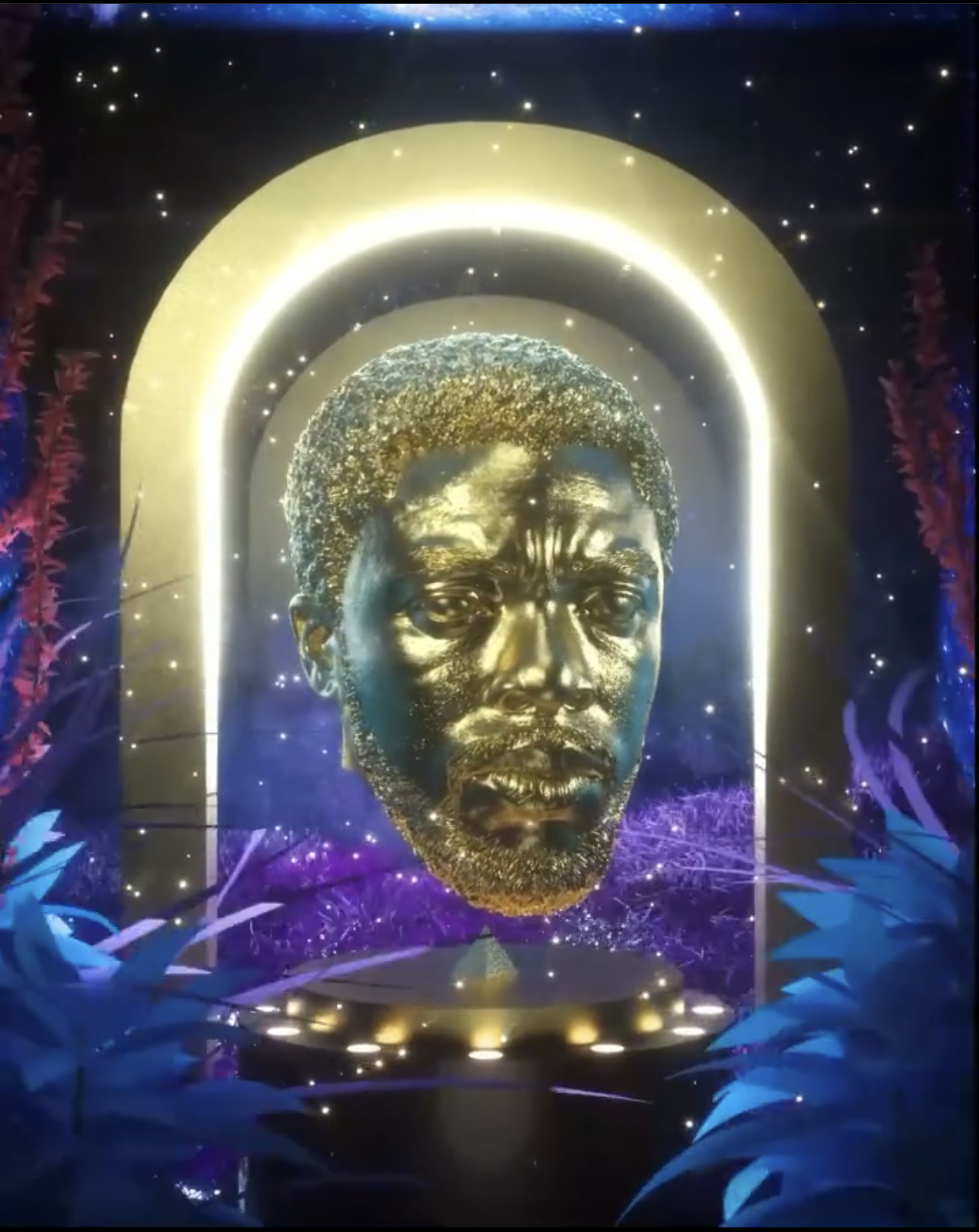
Above: NFT Tribute to Chadwick Boseman by Andre Oshea.
NFT Bust of Chadwick Boseman Condemned
In the aftermath of Chadwick Boseman’s best actor lose, an NFT (Non-Fungible Token) of him is being revamped after its inclusion in gift bags for Oscar nominees.
Many people thought the Academy Awards would follow suit after Boseman won best actor at the Golden Globes, Critics Choice Awards and Screen Actors Guild Awards. Anthony Hopkins won the Academy Award for Best Actor in a Leading Role for his work in Florian Zeller’s The Father, making him the oldest actor to ever win an Oscar. The Academy Awards broke from practice by saving the Best Actor award towards the very end of the telecast; the fact that Boseman lost at the end of the event left a bitter taste of exploitation in many people’s mouths.
The NFT of a 3D digital homage dedicated to Boseman was presented by Distinctive Assets, an organization that offers gift bags to award shows but is not associated with the Oscars. Andre Oshea, an animator who focuses on NFT artwork that explores futuristic and spiritual concepts, developed the artwork.
Many Twitter users suspected Oshea of misusing the 3D print model of Boseman’s head. After one person discovered a royalty-free license for the same model of Boseman’s head on CGTrader for $50, they came to this conclusion: if the vendor does not indicate any contradicting licensing requirements, the buyer has the freedom to distribute the artwork as an “incorporated artifact” from any still or moving pictures, according to the general terms and conditions listed on the 3D model marketplace’s website.
Though Oshea was preparing to auction his NFT of Boseman on Rarible, he removed it and issued an official statement about the controversy concerning his work. The artist said he would update the artwork and bring it up for sale later this week, calling the past week “a big learning opportunity.” Half of the funds generated also will be donated to the Colon Cancer Foundation, according to Oshea.
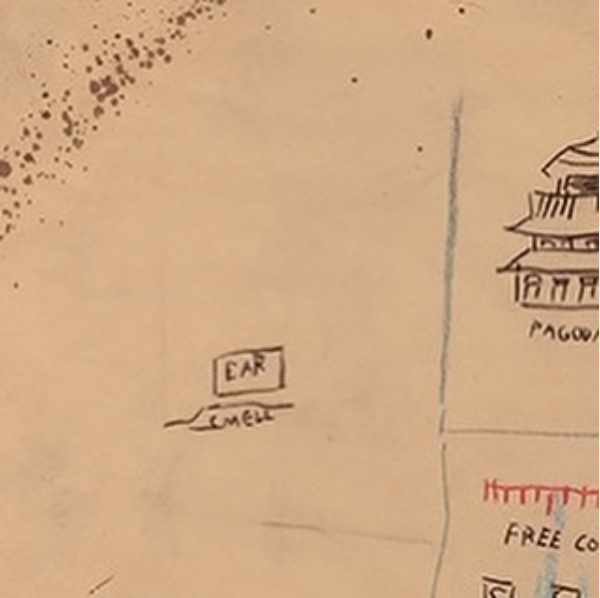
Above: A portion of Jean-Michel Basquiat’s Free Comb with Pagoda.
Basquait Auction Squashed before Final Sale
The sale of the NFT (Non-Fungible Token) of Free Comb with Pagoda, a 1986 mixed media piece on paper, was funded by the little-known firm Daystrom, which said the purchase would “memorialize ownership” as well as “reproduction and IP rights that will be sold to the highest bidder in perpetuity.”
According to The Art Newspaper, an NFT of a painting by Jean-Michel Basquiat was withdrawn from auction after it was discovered that the seller lacked the required permission or rights to the design. Basquiat’s estate stepped in after the firm, Daystrom, placed Free Comb with Pagoda, 1986, for sale on the OpenSea platform and gave the buyer the option of destroying the initial, physical work. On the OpenSea marketplace, prices began at one Ethereum (roughly $2,500).
The work, according to Daystrom, was authenticated by the late artist’s foundation in 2002 and was last auctioned in 2012 by Heritage Auctions of Texas. It was supposed to sell for between $80,000 and $120,000, but it did not, and it was bought privately in 2015 for an unspecified sum by a Philadelphia gallery.
David Stark, the licensing agent who deals with Basquiat’s archive, told The Art Newspaper: “The estate of Jean-Michel Basquiat owns the copyright in the artwork referenced. No license or rights were conveyed to the seller and the NFT has subsequently been removed from sale.”
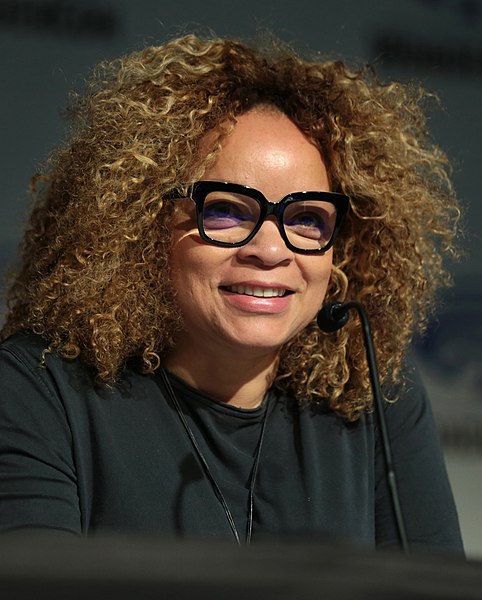
Above: Ruth E. Carter speaking at the 2018 WonderCon in Anaheim, California. Photo by Gage Skidmore
Ruth E. Carter To Be Honored
Ruth E. Carter, a Springfield resident and Academy Award-winning costume designer, will be honored at the Boston Arts Academy Honors 2021 on May 1.
Carter has designed costumes for over 45 films, including the recent Black Panther and Coming 2 America. She is a StageWest apprentice and a Springfield Technical High School alum. Carter is the first Black woman to receive an Academy Award for Costume Design for Black Panther, and was also nominated for her designs in Spike Lee’s Malcolm X (1992) and Steven Spielberg’s Amistad (1997). In 2019, she was nominated to the board of directors of the Academy of Motion Picture Arts and Sciences. Carter won a career excellence award from her colleagues at the 21st annual Costume Designers Guild Awards that same year.
Carter was the first Black fashion designer and the second costume designer to have her reputation enshrined at Hollywood and Vine, receiving a star on the Walk of Fame for costume design. Edith Head, a well-known fashion designer, was the first in her industry to win a star more than 60 years ago. Boston Arts Academy is the only public high school in Boston dedicated to the visual and performing arts. The honorees’ remarks will be televised live on NBC10 Boston and NECN at the evening ceremony.
Carter will be honored alongside David Ortiz, a former Red Sox player, and four others.
FAMU Receives Generous Donation
The Meek Eaton Archives at Florida A&M University (FAMU) is adding more than $300,000 worth of art from Ghana to its already vast collection.
Between 1875 and 1940, nine wooden “farm spirits” were made to defend crops, women, infants and houses. Termites may have damaged such objects in the past, but the pieces donated avoid such issues. Richard Douglass, a University of Michigan scholar, selected the Meek Eaton Archives for proper storage and appreciation.
“These pieces would literally be put at risk if we didn’t do something,” Douglass told WTXL Tallahassee.
Douglass has provided the Archives with a $4,500 check in addition to the specific items. Nashid Madyun, the director of the FAMU Black Archives, claims that the collection is worth much more than its monetary value.
Until being placed on view, each item will be subjected to additional preservation procedures.
